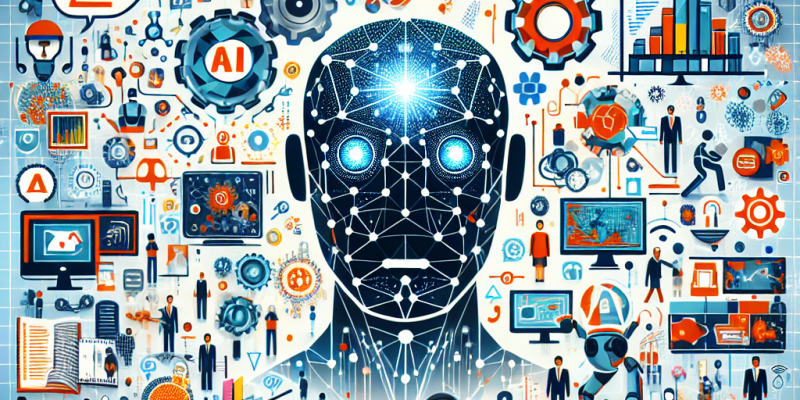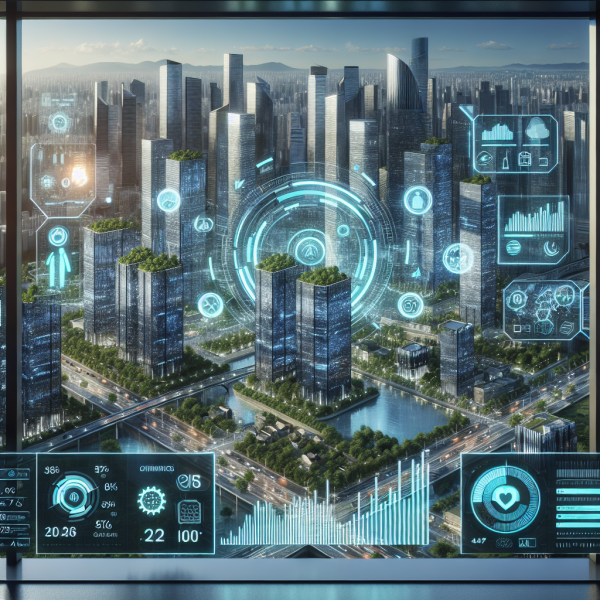2024 Tech Trends: What Emerging Technologies Mean for Industry and Society

As we embark on the journey through 2024, the technological landscape is evolving at an unprecedented pace. Innovations are not only reshaping industries, but they are also transforming societal norms and personal experiences. From advancements in artificial intelligence to the expansion of sustainable technologies, the trends emerging this year highlight a profound shift in how we interact with the world around us. Here, we explore several key tech trends that are set to shape the future for industries and society as a whole.
1. Artificial Intelligence and Automation
Artificial Intelligence (AI) continues to mature, underpinning a wide range of applications, from natural language processing and computer vision to predictive analytics and robotic process automation. In 2024, businesses are increasingly harnessing AI to enhance decision-making processes, automate routine tasks, and enrich customer interactions.
Industry Impact:
- Manufacturing: AI-driven robots are improving efficiency on production lines, reducing operational costs, and minimizing waste.
- Healthcare: Machine learning algorithms are assisting in diagnostics, predicting patient outcomes, and personalizing treatment plans, ultimately leading to better patient care.
- Finance: AI models are revolutionizing fraud detection and risk assessment, enabling financial institutions to offer more secure and tailored services.
Societal Impact:
As AI systems become more prevalent, there are increasing discussions about ethics, bias, and job displacement. The push for responsible AI development emphasizes transparency and accountability to ensure technologies benefit society as a whole.
2. Sustainable Technologies and Green Innovation
With mounting concerns over climate change and environmental degradation, 2024 witnesses a surge in sustainable technologies aimed at reducing carbon footprints and promoting eco-friendly practices. Renewable energy innovations, such as advanced solar panels and wind turbines, along with breakthroughs in energy storage, are at the forefront.
Industry Impact:
- Energy Sector: Companies are adopting solar energy solutions and exploring hydrogen fuel as a clean alternative, leading to more sustainable operations.
- Agriculture: Precision farming technology, powered by IoT and AI, is optimizing resource use, minimizing waste, and increasing crop yields sustainably.
- Transportation: Electric vehicles (EVs) and smart logistics solutions are transforming how goods and people move, aiming for a more sustainable future.
Societal Impact:
Consumer demand for sustainable practices influences corporate strategy and government policy. As society becomes more environmentally conscious, a cultural shift towards sustainability is fostering a community-based approach to addressing climate change.
3. Extended Reality (XR): The New Digital Frontier
Extended Reality, encompassing Virtual Reality (VR) and Augmented Reality (AR), is making waves in various sectors. In 2024, these technologies are becoming more accessible and integrated into both business operations and everyday experiences.
Industry Impact:
- Retail: Businesses are employing AR for virtual try-ons, enhancing the shopping experience, and decreasing return rates.
- Education: VR applications are providing immersive learning experiences, facilitating engagement and understanding in educational settings.
- Real Estate: Virtual tours powered by XR technologies are revolutionizing property showings, allowing potential buyers to visualize spaces without physical visits.
Societal Impact:
The integration of XR in everyday life encourages new ways of interaction and socializing. However, it also raises questions about the blurring of digital and physical realities and impacts on mental health.
4. 5G and Advanced Connectivity
The rollout of 5G technology is revolutionizing connectivity, enabling faster download speeds, reduced latency, and increased capacity for devices. In 2024, the benefits of 5G are becoming more apparent across numerous sectors.
Industry Impact:
- Telecommunications: Businesses are leveraging 5G to improve network reliability and efficiency, paving the way for innovative applications.
- Smart Cities: Enhanced connectivity supports the deployment of IoT devices, optimizing urban services like traffic management, waste disposal, and public safety.
- Telehealth: High-speed connections enable remote healthcare services to deliver high-definition video consultations and real-time monitoring.
Societal Impact:
Increased connectivity enhances accessibility to technology and information, bridging the digital divide. However, it also raises concerns regarding privacy and security as more devices become interconnected.
5. Decentralized Technologies and Blockchain
Blockchain technology continues to gain traction beyond cryptocurrencies, with applications ranging from supply chain management to digital identity verification. In 2024, enterprises are exploring decentralized solutions as a means of enhancing transparency and trust.
Industry Impact:
- Supply Chain: Blockchain is improving traceability and accountability, helping companies verify the authenticity of products and optimize logistics.
- Finance: Decentralized finance (DeFi) platforms are democratizing access to financial services, challenging traditional banking models.
- Art and Media: NFTs (non-fungible tokens) and digital ownership models are redefining how artists and creators monetize their work.
Societal Impact:
As decentralized technologies proliferate, discussions about digital identity, ownership, and data privacy are becoming increasingly relevant. The shift towards decentralized governance models may reshape societal norms around authority and control.
Conclusion
The tech trends of 2024 present both remarkable opportunities and challenges for industries and society. As artificial intelligence, sustainable technologies, extended reality, 5G connectivity, and decentralized solutions continue to evolve, they reshuffle the dynamics of how we live, work, and interact. Emphasizing responsible innovation, ethical considerations, and inclusive practices will be essential for harnessing these advancements to foster a sustainable and equitable future. As we navigate through these transformative changes, collaborative efforts among stakeholders—including businesses, governments, and communities—will be vital in ensuring that technology serves as a powerful tool for positive societal impact.













